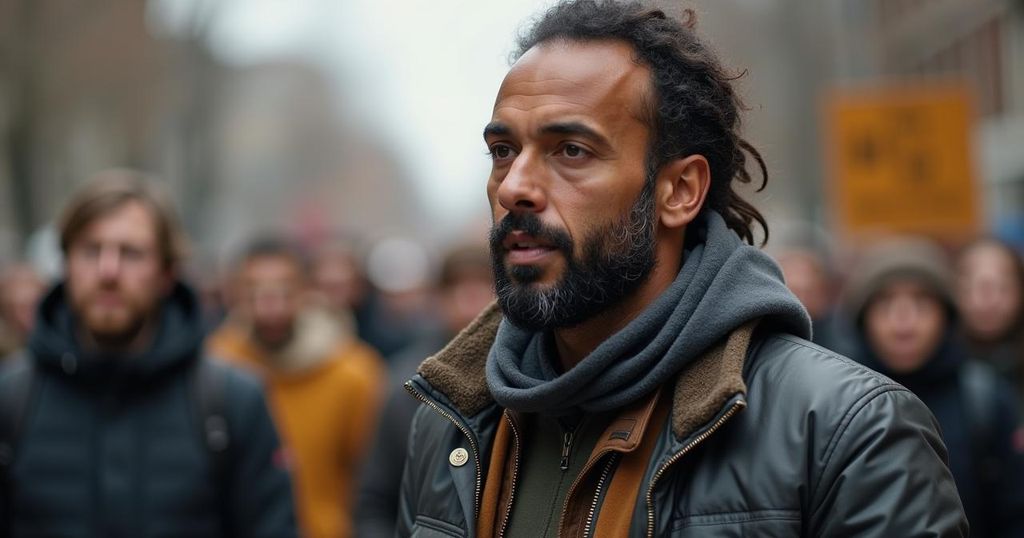Jeremy Jones Advocates for Unity in Climate Conversation Amid Political Tensions

Jeremy Jones, an influential snowboarder and environmental advocate, has released a sequel to his documentary on climate change named “Purple Mountains Live Free or Die.” The film highlights the challenges of addressing climate change amid political divisiveness and aims to encourage dialogue, voter participation, and societal trust in science. Through personal stories and community initiatives, Jones emphasizes the importance of unity and collaboration in combatting the climate crisis.
In the current politically charged atmosphere, Jeremy Jones seeks to foster dialogue on climate change and unity through his latest documentary, “Purple Mountains Live Free or Die.” Following the release of his original film, “Purple Mountains,” in which he examined the impact of climate change on the outdoor industry over his four-decade-long career, Jones felt compelled to produce a sequel only two years later due to ongoing environmental issues. The new documentary, which has been touring since October 7th, centers around Jones’ nostalgic return to New England, particularly New Hampshire, a politically diverse state essential to his snowboarding journey. Throughout his career, Mr. Jones has produced and directed multiple acclaimed films, including “Jeremy Jones’ Deeper” and “Jeremy Jones’ Higher.” However, he encountered distinct challenges while creating “Purple Mountains Live Free or Die.” Jones highlighted the complexities associated with discussing climate change in the current political environment, stating, “This type of film is more difficult than a snowboarding film. At the end of the day, there’s just more tension and more complexities to it… that type of film is a vacation for me.” Securing participation from individuals with differing political perspectives posed significant difficulties; Jones indicated that many potential interviewees were unwilling to engage. Reflecting on this trepidation, he noted, “the toxicity of all things politics has gotten so bad that people just don’t even want to talk about it anymore.” Nevertheless, the documentary also portrays a vibrant youth engagement in outdoor activities, highlighted by a sequence featuring the Abenaki Ski Team in New Hampshire. Jones feels that the enthusiasm of young people serves as both a heartwarming and heartbreaking reminder of the urgency for action regarding climate initiatives. In his collaboration with diverse groups, such as Mardi Fuller’s initiative to encourage inclusivity in outdoor spaces, he has found a glimmer of hope within the community. Jones stated, “Mardi’s group was really energizing to be around… it is easy to take that stuff for granted.” Through “Purple Mountains Live Free or Die,” Jones aspires to rekindle public trust in science and promote critical dialogue regarding climate change. He insists that ignoring scientific consensus has led society to a precarious state—a state that necessitates immediate political and systemic action. Noting the concerning intersection of climate issues with identity politics, he argued that tangible progress can only be achieved if elected officials receive clear demands for climate action from their constituents. He lamented, “The sad truth is that there really has been no politician who has lost an election due to taking bad votes for climate action.” Ultimately, Jones is calling for greater voter participation to forge a political landscape where climate denialists cannot thrive. He concluded by emphasizing the significance of engagement in the democratic process, stating that if more individuals participated in elections, a substantial shift could occur in the political climate regarding environmental matters. Jeremy Jones’ commitment to bridging divides and addressing climate change highlights the possibility of achieving consensus across partisan lines, especially through grassroots initiatives that celebrate community and the natural environment.
Jeremy Jones is a professional snowboarder and environmental activist who has dedicated his life to raising awareness about climate change and its effects on the outdoor industry. Having spent over forty years in the outdoors, Jones launched Protect Our Winters, an organization focused on advocacy and community engagement in the fight against climate change. His previous documentaries, including “Purple Mountains,” showcase the changing conditions of the natural world, driving home the urgency of the climate crisis. The sequel, “Purple Mountains Live Free or Die,” explores deeper social and political issues surrounding climate change, especially the divisiveness it has caused. By emphasizing the importance of communication and collaboration across political divides, Jones aims to inspire collective action toward positive climate initiatives.
In conclusion, Jeremy Jones’ work with “Purple Mountains Live Free or Die” underscores the critical need for civil discourse on climate change amidst a polarized political environment. By encouraging participation in the democratic process, fostering unity through shared outdoor experiences, and reinstating public trust in science, Jones advocates for a collaborative approach to tackle the climate crisis. His experiences illustrate the vital role individuals can play in shaping environmental policy, emphasizing the importance of collective action in confronting the challenges posed by climate change and the political landscape surrounding it.
Original Source: www.theinertia.com






